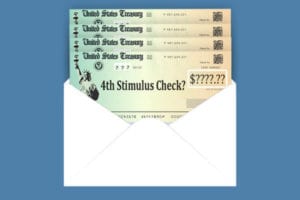It’s a Great Time to Consolidate Credit Card Debt
If you’re considering a consolidation loan to sweep away credit card debt and lower your monthly interest payments, do it! There couldn’t be a better time. All you need is a willing lender and a solid credit score to land a personal loan at a remarkably low interest rate.
The trick is finding a willing lender.
Debt consolidation loans offer an escape from credit-card quicksand. The strategy is simple: take out an unsecured personal loan to pay off your credit card balances. The less interest the personal loan charges, the more you pocket each month in savings.
If you take out a personal loan with a 10% interest rate to pay off four or five credit cards with 18% to 25% interest rates, you can save a lot. Better still, personal loans offer fixed repayment schedules that let you know exactly how long it will take to free yourself from debt.
The savings can be considerable. In May 2020, the Federal Reserve reported that credit cards assessed an average interest rate of 15.78% compared to a 9.5% interest rate on a 24-month personal loan.
So why doesn’t everyone with a mountain of credit card debt go for a consolidation loan? They might if they could find a lender willing to offer financing at a substantially lower interest rate. In 2020, eager lenders are hard to find.
COVID-19 Impact on Debt Consolidation
Since the COVID-19 pandemic swept the planet, lenders have pulled back. As unemployment rates soared and the economy sputtered, lenders became extremely cautious about making unsecured loans. They perceive substantial risk amid economic uncertainty and widespread joblessness. For many, memories of the housing market collapse in 2008 and its devastating impact on mortgage lenders remain fresh. They also worry about bank regulators that might review their balance sheets and take disciplinary action if bad loans proliferate in an economic downturn.
Yet those who land loans often pay low interest rates. The reason: the Federal Reserve has ratcheted down its benchmark funds rate to around 1% — about half what it was in mid-2019. Why? The Fed is worried that the coronavirus recession could worsen if the economy tanks, so it is using low interest rates to give businesses and consumers access to borrowed capital.
Though the Fed doesn’t set consumer lending rates, if it lowers its benchmark rate – its target rate for lending federal funds – bank interest rates normally drop. That impacts how much interest consumers pay on new loans.
Almost every type of borrowed money is available at a lower rate today than a year ago, except one which has moved little: Credit cards.
The interest rates every brand of credit card have remained high.
Ted Rossman, an industry analyst with CreditCards.com, said those hoping to turn high-interest credit card debt into lower interest consolidation loans should consider seeing a nonprofit debt counselor.
“A lot of people are overwhelmed by debt and financial talk,” Rossman said. “Debt counselors can explain things to you clearly. You need to ask yourself how comfortable you feel going through this process on your own.”
Knowing where to find a consolidation loan isn’t easy. Rossman said both banks and online lenders competed for personal loan customers not long ago, but they’ve pulled back.
“Personal loans were really hot in recent years,” Rossman said. “There have been a lot of fintech players operating in the field. That all changed with the onset of the pandemic and tighter credit.”
Nonprofit credit counselors are familiar with the loan market and know how to negotiate, Rossman said. They can advise do-it-yourselfers and negotiate consolidation loans for those who don’t know where to start.
For those with solid credit scores, balance transfer cards were a common tool for consolidating debt and temporarily reducing interest payments. The cards allowed debtors to move balances from high-interest cards to new ones that often eliminated interest payments for many months.
“Balance transfer cards were pretty easy to get six months ago, but that has pretty much dried up,” Rossman said.
Is Consolidating Debt a Smart Strategy?
Before you decide to pursue a consolidation loan, it pays to evaluate your financial situation. Become familiar with your credit score, which is key to finding a loan with a low interest rate. If your score is low, ask a credit counselor what you might do to improve your credit. If you missed card payments or failed to pay minimum balances, contact your card issuer and try to become current. The fewer dings on your credit report, the higher your score will climb. If you are uncertain how to proceed, consider contacting a credit counseling agency.
Also consider you current situation. If you are unemployed or furloughed but expect to return to work soon, this might not be the best time to seek a consolidation loan. Lenders will be reluctant to loan you money or offer a low interest rate if you don’t have an income.
If you’re out of work, it might be better to contact your credit card issuers and explain your situation. They will frequently allow you to skip payments or move to a lower interest rate. After all, they would rather you keep paying your bills than default on what you owe.
Sources:
- Mastroeni, T. (2020, July 20) Now’s the Best Time to Consolidate Credit Card Debt – Here’s Why. Retrieved from https://www.foxbusiness.com/money/best-time-consolidate-credit-card-debt
- Baum, C. (2020, March 3) If the Economy Is In ‘A Good Place,’ Then Why are Interest Rates So Low? Retrieved from https://www.marketwatch.com/story/if-the-economy-is-in-a-good-place-then-why-are-interest-rates-so-low-2020-03-03
- N.A. (2020, August 7) Consumer Credit, G-19. Retrieved from: https://www.federalreserve.gov/releases/g19/current/


















